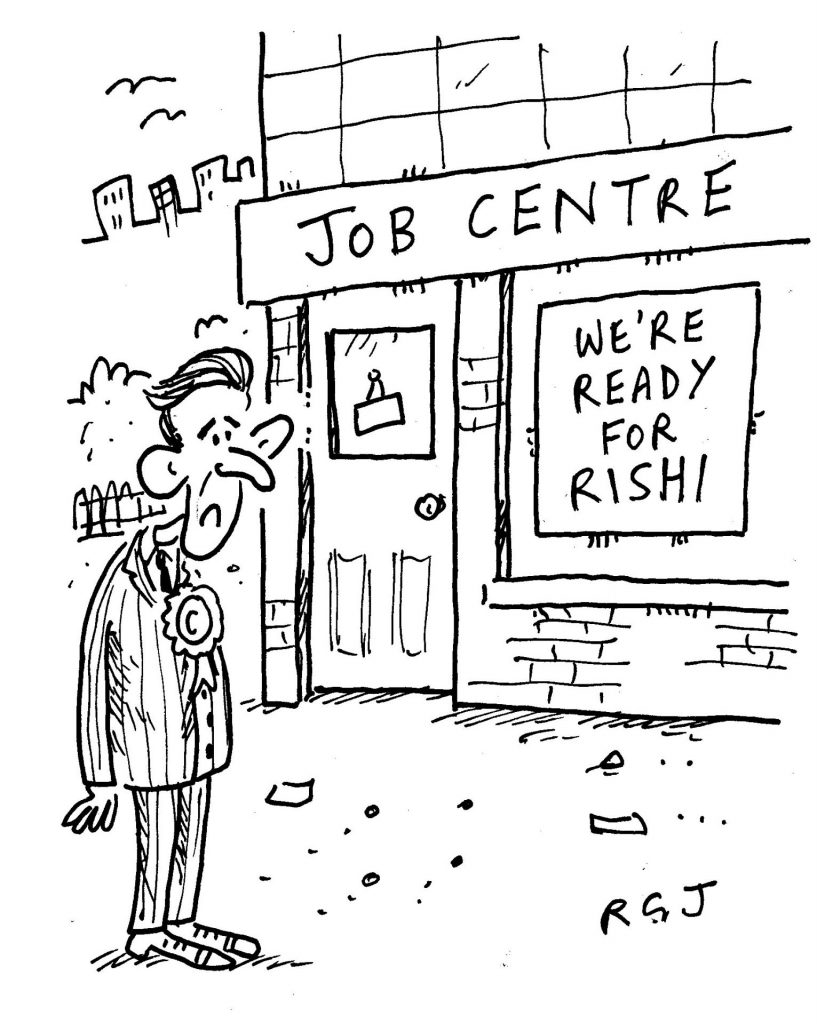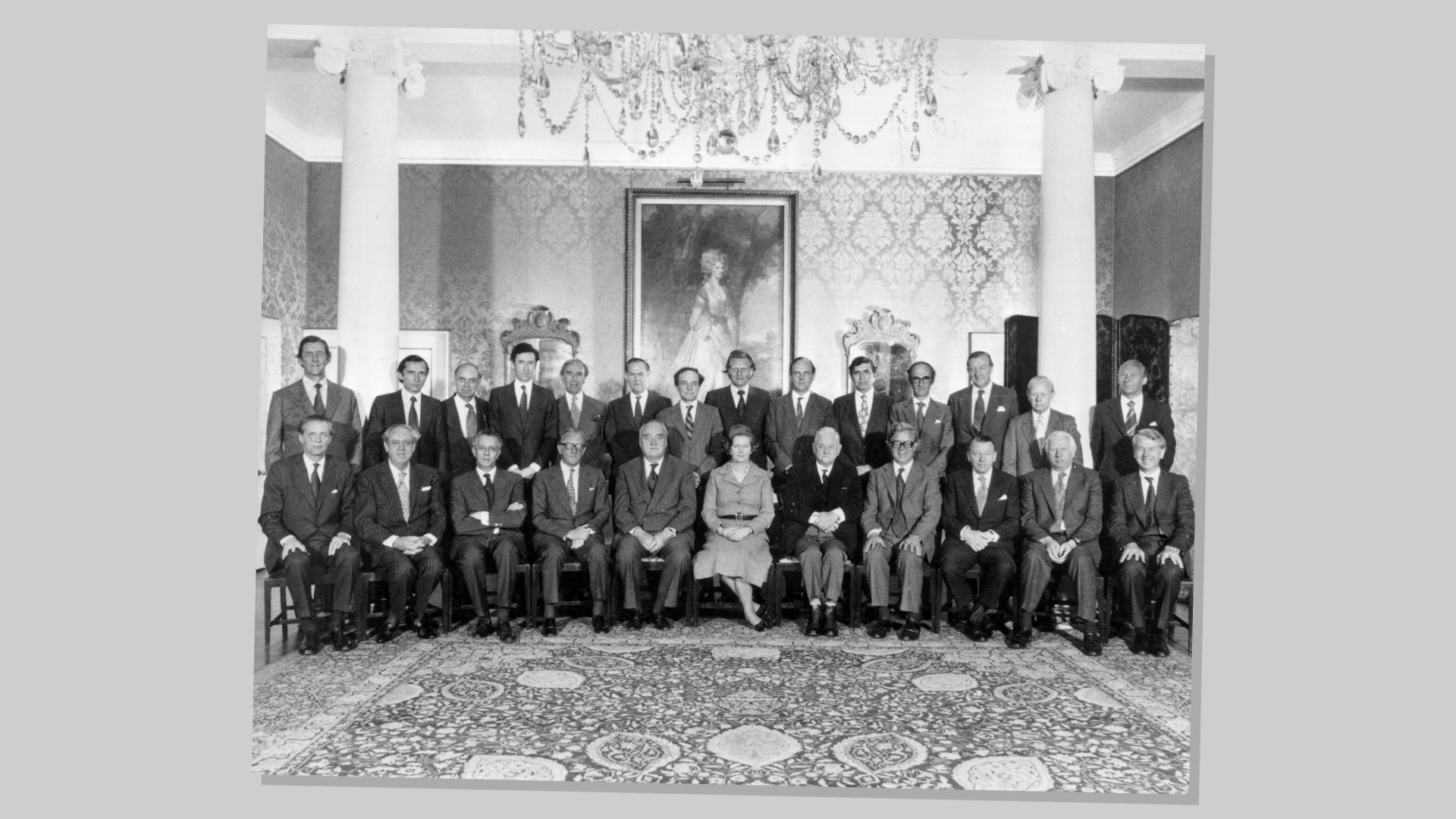The hollowing out of the Tory Party, with the deliberate defenestration of some of its brightest MPs, who refused to back something they knew would damage the country, inevitably limited the talent pool from which the new government was drawn. It’s a talent pool so shallow it’s a surprise we haven’t ended up with a duck running Downing Street.
There is a temptation for every generation to look back and imagine that the politicians of yesteryear were more impressive than today’s. But with Liz Truss having risen to the top by projecting herself as some kind of Thatcher tribute act for the Instagram age, I suggest that you take a quick look at Maggie’s first cabinet, and imagine any of the new cabinet being able to match the intellect, political skills and critical thinking of the individuals she appointed. Whitelaw, Soames, Hailsham, Carrington, Howe, Heseltine, Joseph, Biffen… some of these names may mean little to younger generations, and some of their politics may be anathema to older ones, but they were big, serious figures in a time of the kind of big, serious politics that we need today more than ever.
That they were all, bar Thatcher, men, shows that on some fronts at least, there has been progress. Also, one of the few good things I can bring myself to say about Truss is that she was, unlike most of the 1979 cabinet, educated in a state comprehensive school.
But I fear there has never been a period in our history when the chasm between the scale of challenges that are faced, and the quality of people in charge of facing them in government, has been so vast.
As the energy crisis developed in the dying days of Boris Johnson’s shameful and wasteful time in office, I realised I had to look up the name of the energy minister. It was someone called Anne-Marie Trevelyan.
I then looked up the list of energy secretaries from the time it was a self-standing cabinet post, not just lumped in with business or climate change. Lord Carrington. Then Eric Varley followed by Tony Benn for Labour. Under Thatcher and John Major, we had David Howell, Nigel Lawson, Peter Walker, Cecil Parkinson, John Wakeham. Again, all men. But also, all big figures at the time, taken seriously by friend and foe alike.
That it was a cabinet post, downgraded by Major in 1992, was an indicator of the importance to our economy of North Sea oil, and perhaps both Tory and Labour governments would have been wiser to have taken a more Norwegian approach to the windfall that it provided. Norway’s management of their Sovereign Wealth Fund, now the biggest in the world, has made Norway one of the richest and most successful countries on the planet.
So perhaps despite being better quality than today’s politicians, those of the past failed to take a genuinely strategic approach to oil. Labour not having done so, then Mrs Thatcher proceeded to spaff well north of £100bn on unemployment, tax cuts and the export of capital.
But did anyone notice anything even remotely resembling a strategy, not just about energy, but frankly about anything, to meet any of the enormous challenges we are facing, in the proposals Truss was making during the leadership election?
If so, please feel free to tell me what it was and please, don’t tell me it was the VAT cut idea.

If you want to know more about Norway’s Sovereign Wealth Fund, google NBIM.NO for the site of Norges Bank Investment Management. The last time I looked, it was worth 11,952,961,879,660 Kroner. That’s a lot. However, I noticed a change from the many times, in moments of boredom, that I have checked it before, when you could watch its value developing in real time, the numbers rising higher and higher by the second. Now the updates are less constant.
Might the change be because – scroll down to the first big graph on the main Fund page – the steadily rising line showing its remarkable growth since 1998 has seen its biggest dip in recent months?
So it made a record loss of 1.68 trillion kroner (£144bn) in the first half of the year as its investments were hit by worries about global recession, rampant inflation, and the impact of Russia’s invasion of Ukraine.
It proves the old adage that what goes up can come down, but it’s fair to say they have certain advantages we lack… a lot of money set by for rainy days, for example, and a serious government that roots decisions in fact and genuine analysis, not in populist slogans, lies and wishful thinking.
It was great to spend a bit of time last week with the England rugby coach Eddie Jones, who was recently “rebuked” by the Rugby Football Union (RFU) for telling the truth, namely that the game would do better if it was less dependent on private schools.
On the media landscape, they don’t come much more Swing Low, Sweet RFU than the Daily Telegraph, so fair play for the research they did, and the way they presented it, revealing that “with the exception of the European Championship-winning women’s football team, national squads in major team sports have a far greater proportion of players who came through the independent sector than state schools, despite only 7% of the population being privately educated.”
The Telegraph report added: “The findings have prompted renewed calls to implement the recommendations of a parliamentary committee last year that urged greater support for PE and sport in state schools.”
One of the tragedies of the Tories’ 12 years in power, and especially of austerity, is that we failed to use the London 2012 Olympics and Paralympics to cement a sporting revolution in Britain.
Sport and arts, which are so wellfunded and supported in the top private schools, are now viewed as luxuries for the state sector, or only exist if teachers go above and beyond their official, already highly demanding, workload.
The Telegraph showed that there was actually a record number of privately educated athletes representing Team GB at the most recent Olympics in Japan, and they also reported research by the Youth Sports Trust showing that more than 40,000 hours of PE have been lost within the state sector in the decade since the London Olympics in 2012.
Levelling Up? In the bullshit slogans category, amid a crowded Johnson-Truss era field, it is a gold medal winner.
We arrived in Edinburgh on the tenth day of a 12-day strike by bin men, so there were unsightly and nasty-smelling piles of rubbish all over the city.
Three points though. First, despite all the inconvenience of the strike, most of the local people who I spoke to seemed to support the strikers’ demands for a decent pay rise.
Second, away from the overflowing bins, general littering in Edinburgh wasn’t as bad as it might have been, and when we went swimming at Portobello beach, I was impressed by the sight of people coming out with rubbish in small plastic bags, and trying to squeeze them into the bigger bags already lying on the street.
And third, unlike the UK government, which seems to think that its role in industrial disputes is to exploit them, Scotland’s first minister Nicola Sturgeon played a central role in reaching a proposed settlement the unions were prepared to recommend to their members.
All that being said, it was nice when the strike was over, the rubbish was gone, the streets were clean, and you didn’t need to hear any more Americans saying it was like the third world




